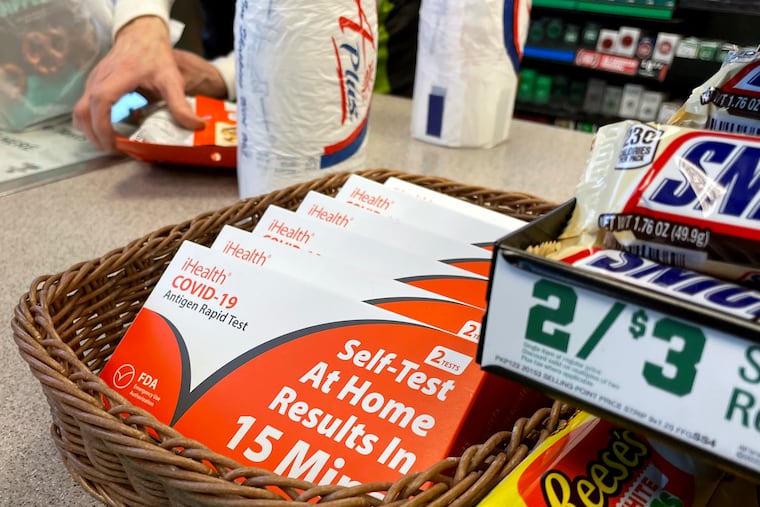Philadelphia sees slight rise in COVID hospitalizations
Case counts in 2023 remain well below COVID-19 rates this time last year.

The Philadelphia Department of Public Health is urging people to take precautions against COVID-19 as hospitals see a slight rise in cases.
A total of 60 people are currently hospitalized with COVID in Philadelphia, marking the first time since the spring that more than 50 people have been hospitalized with the virus, according to the health department. Case counts remain “far below” illness and hospitalization rates this time three years ago, the department said in a news release.
» READ MORE: Philly COVID cases are on a slight uptick, a reminder that the disease is still part of daily life
In Pennsylvania, weekly COVID hospital admissions rose from 281 cases on Aug. 5 to 403 cases on Aug. 19, the most recent week for which data are available through the Centers for Disease Control and Prevention. There were 1,453 weekly COVID hospital admissions reported in the same week of August last year, according to the CDC.
Although cases are beginning to rise again, the virus doesn’t have to be as disruptive to daily life as it was at the height of the pandemic, said Philadelphia Health Commissioner Cheryl Bettigole. She likened COVID preparations in 2023 to “living with the potential for severe storms.”
“Fortunately, we no longer need to put our lives on hold or miss out on important events,” she said in a statement. “But we do need to stay aware of the virus and to be a bit more careful when we see signs of an increase in spread.”
New vaccines that target the latest COVID variants are expected this fall.
Taking “reasonable precautions” can help prevent the virus from affecting people at highest risk, she said.
Here’s how to stay safe:
Stay home if you’re sick.
Take inventory of your at-home COVID tests, hand sanitizer and masks, and restock if supplies are low or expired. (The Food and Drug Administration maintains a list of COVID tests for which expiration dates have been extended.)
Consider wearing a mask in crowded indoor spaces.
Get tested (or use an at-home test) if you feel unwell or suspect that you were exposed.
If you test positive and are high risk, talk to your doctor about Paxlovid or other antiviral medications.